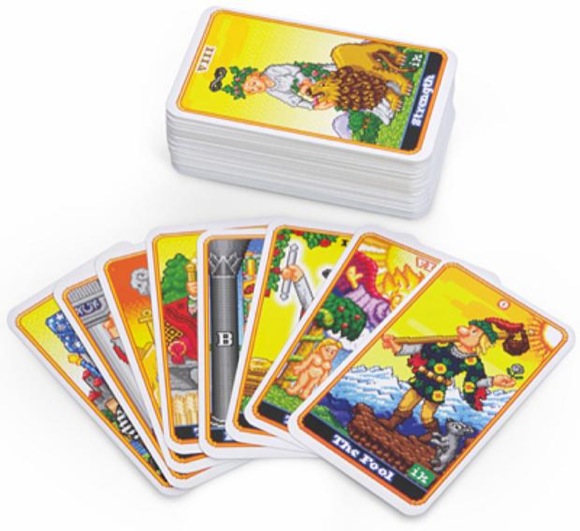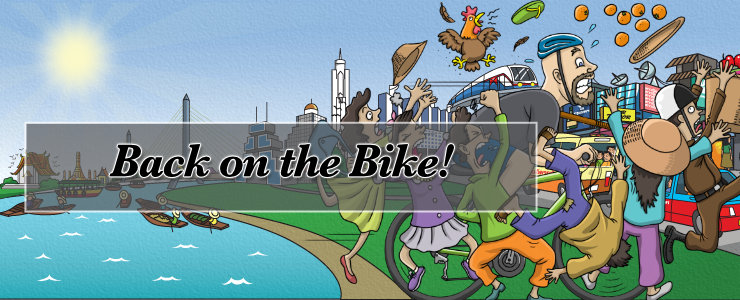If you’ve spent any amount of time in Thailand, you’ll be familiar with the the fact that most Thais – young or old – put a whole lot of faith in superstition, myth, and legend. From ghosts to fortune tellers to old wives’ tales of the tallest order, you will find that belief in these things is as ingrained in the culture as mango and sticky rice. Now, I’m of the mind that one should live and let live and mind your own business. If someone wants to make offerings of Snickers bars to the spirit inside their great-grandfather’s favorite pencil, who am I to argue? But for those of us who tend to favor the side of hard evidence, it can be at times frustrating, amusing, and confusing. Obviously, superstition and myth aren’t just specific to Thailand – every country has its rituals and beliefs – but in Asia it does seem to be less a personal belief as it is a cultural norm.
For instance, in every relationship I’ve been in in Thailand, I’ve not been able to talk about ghosts at home. Even saying the word brings looks of condemnation, because every building has ghosts that are waiting to haunt and/or kill you if you give them a chance. That is a fact, and if you don’t see that then you’re just playing with fire, my friend. Similarly, if you’ve ever been outside in a light spring rain in Thailand, you’ll hear calls telling you to come inside quickly before you get the flu. Of course, if you ask why no one gets sick when they take cold showers, as many Thais do, you’ll just be told that it’s not the same.

This woman will be dead within 10 hours, likely from the bubonic plague.
I can’t count how many products I’ve seen whose veracity would crumble if you applied even a tiny bit of logic – claims of ‘instant-action’ have been presented for baldness, teeth whitening, skin whitening, weight gain, weight loss – even full-fledged facial reconstruction via massage. Of course, fortune telling is huge here too, and friends go back to fortune tellers if they managed to get a tiny detail correct – but just find a new one if they got too much information wrong.
My personal experience with this kind of guesswork gussied up as legitimate advice is fairly recent: my fiancee’s family monk picked November 6 as the most auspicious day to wed. Of course, when that day came, Bangkok was surrounded by trillions of liters of water that was threatening to deluge the city and the wedding was postponed. You’d think he – or any of the famed fortune tellers in the country – would have seen that coming, but I guess not…

Actually, this would be a pretty awesome switch to have…
When I ask why these methods – if they truly work – haven’t yet made their owners overnight billionaires I always get an answer about it being a Thai secret or something similarly vague. The most recent and famous example of this was the ‘breast slapping’ technique, in which Khemmikka Na Songkhla claims that by slapping a pair of boobs around they will get bigger. Of course, if you slap any soft-tissue body part hard enough and long enough, it will get bigger; it’s called swelling, and it goes away. Again, no one can really explain why her method hasn’t caught on on a global scale. Of course, if you have $263,000, she can teach you how to do it.
In fact, the Thai ability to believe wholeheartedly in things that are easily disproven led a good friend of mine to create and teach a university course on critical thinking. Ajarn Ed, as he would like to be called, teaches at Thammasat University, one of Thailand’s better known schools. His course is structured as an overview of critical thinking as it applies in several different areas:
1) Basic Epistemology: How humans use the five senses to gain knowledge. 2) The Scientific Method and Scientific Skepticism: Fun stuff like debunking paranormal claims, ghosts, bigfoot, etc. 3) The Psychology of Critical Thinking: Looking at cognitive flaws of the human brain. 4) Logic and Argumentation: How to construct a logical argument and how to find flaws, questionable assumptions and traditional logical flaws. Ajarn Ed explains:
Overall, the reaction of the students has been very positive. I was worried about possible blowback in that students might perceive the course as some kind of attack on Thai culture, but I present it very neutrally and make clear that 40% of Americans believe in ghosts. What I found is that the students are hungry for it; they just need someone to present it in a clear way.
As a skeptic and science nerd, this fascinates me. Having a bit of formal, structured education which encourages students to confront their own assumptions can never be a bad thing right? Indeed, it’s probably sorely needed in Thailand, where children are taught to memorize, not analyze. Ajarn Ed finishes his classes with a classic bait-and-switch that I’m sure gives his students something to think about for a while:
At the beginning of each semester I ask my students for their birthdates in a questionnaire. In a later class I begin explaining how astrology works and lie and tell them there is good science to back it up. Finally, I pass out ‘fortunes’ with each students name and birthdate typed on it, and I ask them each to evaluate how accurate it is. On a scale of 1 to 5, where 5 is ‘totally accurate’, the class average is usually around a 3.5 to 4. When I reveal to them that I gave them all the same fortunes, the class always gets a big kick out of it.
The funniest funniest thing ever in my teaching career occurred after I revealed to the students that all the fortunes were the same. One girl sitting in the front row turned to her friend and started yammering in Thai, obviously upset, and then blurted out in English: “That bitch set me up!”

The fortune teller is always confused when I pick the Jack of Asses.
At any rate, although Ajarn Ed’s course is obviously professionally done and not set up to take the piss out of Thai culture, it’s really interesting that the young generation might be willing to apply a bit of logic to age-old beliefs. Because myth and superstition are so ingrained in Thai culture, I doubt they’re in danger of disappearing anytime soon – but I do wonder if a course like this could have been taught 20 years ago?
Well…I guess none of it is any worse than my own culture. I couldn’t gloss over this woman whose facial exercises have kept her…uh…beautiful?





I'll be the first to say it, you don't understand Thai people. 555
Hi Greg,
great post, was wondering, why you have not posted for some time. Belief's in Myth's, Legends, Astrology, Palmistry, Ghost etc etc are more in Asia, 'cos Asia is much older civilization than the western world.
However, Western worlds too had their Pagan, Celtic, Druids origins which believed in rituals, ghosts, tarots etc etc.
Science cannot explain lots of mysteries of this universe. If one does deep research on these myths and legends..then science and spirituality will eventually meet at some point.
The US military extensively uses Remote Viewers for intelligence purposes..Google Ingo Swan. Now it is a known fact in science world regarding multi verse universe, astral plane, anti-matter, quantum leap etc etc…which were thought to be mambo jambo few decades back…Google Montauk Prokect
Leading Physicist Michi Kaku now believes in Inter dimensional plane, time travel where these myths are suppose to come from….it won't be too long when science accepts that beings do live in these plane and they come often to earthly plane which people say as Ghost,s demons..
http://www.youtube.com/watch?v=RnkE2yQPw6s
I'll be the first to say it, you nailed Thai people and their incredible gullibility! I also cannot say the 'G' word at home.
I quite like the way spirits are everywhere in Thailand. Of course if I actually believed in spirits, it would freak me out.
I wrote an article about ghosts and spirits for a Bangkok magazine a while back. It can be found here http://thewordofward.co.uk/?p=152&preview=true. Some of them are actually pretty cool and as a Thailand resident you are bound to have seen a few of them in movies. Floating heads eating unborn babies and suchlike.
I wanted to do a follow up article by staying in one of Bangkok's most haunted houses but absolutely all my Thai friend's (including my level headed wife) forbade it. Quite strongly.
In Britain the fact that a place is haunted is publicized for tourism. Same belief in ghosts but different way of dealing with it.
Richard Wiseman's 'Quirkology' does a pretty good scientific debunking of astrology and is a good read.